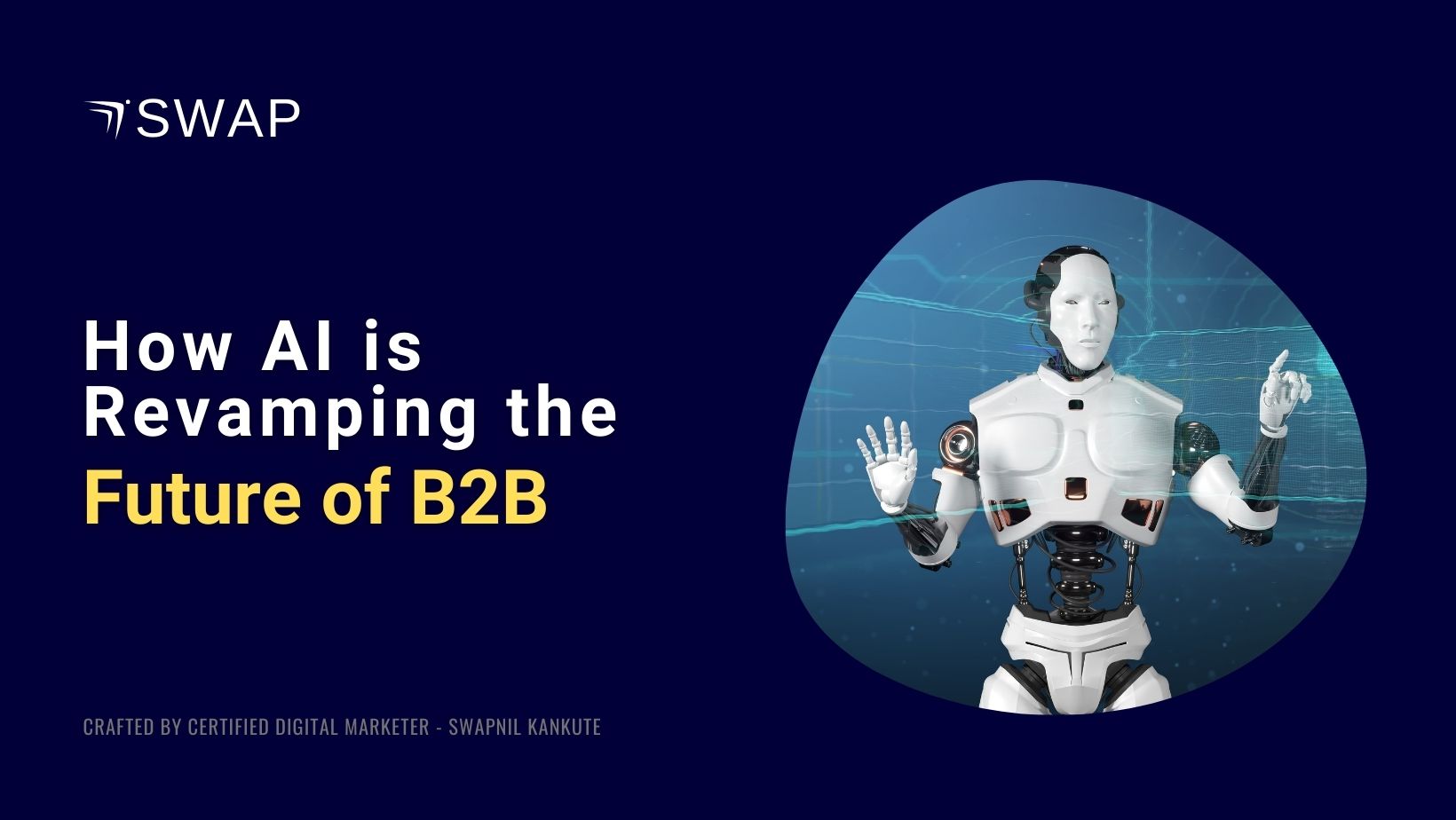The Role of AI in Modern Marketing
Artificial Intelligence (AI) is revolutionizing various industries, and B2B marketing is no exception. By leveraging AI, businesses can enhance their marketing strategies, improve customer experiences, and achieve better outcomes. AI technologies, such as machine learning, natural language processing, and predictive analytics, provide marketers with powerful tools to analyze data, automate processes, and personalize interactions at scale.
Importance of Personalization in B2B Marketing
In the current digital age, customers are bombarded with an overwhelming amount of information and communications. As a result, personalization has become a critical component of effective marketing. According to recent studies, 71% of customers expect brands to deliver personalized experiences. For B2B marketers, personalization means tailoring content, recommendations, and communications to meet the unique needs and preferences of each business customer.
AI Technologies Transforming B2B Marketing
Machine Learning
Machine learning algorithms can analyze vast amounts of data to identify patterns, trends, and insights. This enables marketers to make data-driven decisions, predict customer behavior, and optimize marketing campaigns. For example, machine learning can help segment audiences based on their behavior, preferences, and purchase history, allowing for more targeted and effective marketing efforts.
Natural Language Processing (NLP)
NLP enables machines to understand and interpret human language. In B2B marketing, NLP can be used to analyze customer feedback, monitor social media conversations, and create more engaging content. By understanding the sentiment and context of customer interactions, marketers can respond more effectively and tailor their messaging to resonate with their audience.
Predictive Analytics
Predictive analytics uses historical data to forecast future trends and behaviors. In B2B marketing, predictive analytics can help identify potential leads, predict customer churn, and optimize sales strategies. By anticipating customer needs and behaviors, marketers can proactively address issues, improve customer retention, and drive growth.
Applications of AI in B2B Marketing
Lead Generation and Scoring
AI can significantly enhance lead generation and scoring processes. By analyzing data from various sources, such as website interactions, social media activities, and email engagements, AI can identify high-potential leads and score them based on their likelihood to convert. This enables sales teams to focus on the most promising leads and improve their efficiency.
Customer Segmentation
AI-driven customer segmentation allows marketers to group customers based on specific attributes, behaviors, and preferences. This enables more precise targeting and personalized marketing campaigns. For example, AI can segment customers based on their industry, company size, and purchasing behavior, allowing for tailored messaging that resonates with each segment.
Content Personalization
AI can analyze customer data to deliver personalized content recommendations. By understanding each customer’s interests, preferences, and behaviors, AI can suggest relevant articles, whitepapers, case studies, and other content that meets their needs. This enhances the customer experience and increases engagement and conversions.
Chatbots and Virtual Assistants
AI-powered chatbots and virtual assistants provide instant support and information to customers. They can handle routine inquiries, provide product recommendations, and assist with troubleshooting, freeing up human agents to focus on more complex issues. In B2B marketing, chatbots can engage with potential leads, answer their questions, and guide them through the sales funnel.
Predictive Sales Forecasting
AI can improve sales forecasting accuracy by analyzing historical sales data, market trends, and external factors. This helps businesses anticipate demand, allocate resources effectively, and make informed decisions. Predictive sales forecasting also enables marketers to identify potential upsell and cross-sell opportunities.
Benefits of AI in B2B Marketing
Improved Efficiency
AI automates repetitive and time-consuming tasks, such as data analysis, lead scoring, and customer segmentation. This allows marketers to focus on strategic activities and creative tasks, improving overall efficiency and productivity.
Enhanced Customer Experience
By delivering personalized and relevant content, AI enhances the customer experience. Customers receive information and recommendations that match their interests and needs, leading to higher satisfaction and loyalty.
Better Decision Making
AI provides marketers with actionable insights and data-driven recommendations. This enables better decision-making and more effective marketing strategies. Marketers can optimize their campaigns, allocate resources efficiently, and achieve better results.
Increased ROI
By targeting the right audience, personalizing interactions, and optimizing marketing efforts, AI helps businesses achieve higher ROI. AI-driven marketing strategies are more effective and efficient, leading to increased conversions and revenue.
Challenges and Limitations
Data Privacy and Security
AI relies on vast amounts of data to function effectively. Ensuring data privacy and security is a significant challenge. Businesses must comply with regulations, such as GDPR, and implement robust security measures to protect customer data.
Integration with Existing Systems
Integrating AI technologies with existing marketing systems and tools can be complex and costly. Businesses must ensure that AI solutions are compatible with their current infrastructure and workflows.
Talent and Skill Gap
Implementing AI in marketing requires specialized skills and expertise. There is a growing demand for professionals with knowledge of AI, data science, and machine learning. Businesses must invest in training and hiring the right talent to leverage AI effectively.
High Costs
AI technologies can be expensive to implement and maintain. Small and medium-sized businesses may face budget constraints, making it challenging to adopt AI solutions.
Future Prospects
AI-Driven Marketing Automation
The future of B2B marketing lies in AI-driven marketing automation. Advanced AI algorithms will enable fully automated marketing campaigns, from lead generation to customer engagement. This will further enhance efficiency and effectiveness.
Personalization at Scale
AI will continue to drive personalization at scale. Businesses will be able to deliver hyper-personalized experiences to each customer, improving engagement and satisfaction.
Integration with IoT and Blockchain
The integration of AI with Internet of Things (IoT) and blockchain technologies will open new possibilities for B2B marketing. IoT devices will provide real-time data for more accurate predictions, while blockchain will enhance data security and transparency.
AI-Powered Predictive Analytics
AI-powered predictive analytics will become more sophisticated, providing deeper insights and more accurate forecasts. This will enable businesses to stay ahead of market trends and make proactive decisions.
Conclusion
Summary of Key Points
AI is transforming B2B marketing by enhancing lead generation, customer segmentation, content personalization, and sales forecasting. The benefits of AI include improved efficiency, enhanced customer experience, better decision-making, and increased ROI. However, challenges such as data privacy, integration, talent gap, and high costs must be addressed.
Call to Action for Further Exploration
As AI continues to evolve, businesses must stay informed about the latest trends and developments in AI-driven marketing. Investing in AI technologies and training will be crucial for staying competitive in the future. For more insights and resources on AI and digital marketing, visit Swapnil Kankute’s Knowledge Center.




1 Comment
You have remarked very interesting points! ps
nice internet site.